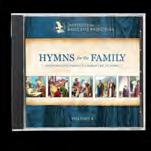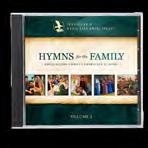Deference
Limiting my freedom in order not to offend the tastes of those God has called me to serve
“It is good neither to eat flesh, nor to drink wine, nor any thing whereby thy brother stumbleth, or is offended, or is made weak.”
ROMANS 14:21
PAUL SUPPORTS HIMSELF WHILE PREACHING
“We . . . wrought with labour and travail night and day, that we might not be chargeable to any of you: Not because we have not power, but to make ourselves an ensample unto you to follow us.”
II THESSALONIANS 3:8–9


SPIRITUAL GIFT:

CHARACTER ILLUSTRATED CURRICULUM
in Scripture, Illustrated in Life
BIBLICAL
Illustrated
Mercy
CONTENTS
2 Introduction
2 How to Use This Curriculum
3 Goals and Objectives

4 Character Quality Overview
5 Deference in Scripture
6 Lesson 1: Be a Good Example
7 Bible Story: Paul Supports Himself While Preaching
8 Memory Verse: I Timothy 4:12
9 Activity: Simon Says
10 Lesson 2: Use Music to Edify Others
11 Bible Story: God Gives Moses a Song for Israel
12 Memory Verse: I Chronicles 16:23
13 Activity: Music in the Making!
14 Lesson 3: Refrain from Causing Offense
15 Bible Story: The Unexpected Provision for Peter’s Taxes
16 Memory Verse: Romans 14:21
17 Activity: Found in a Fish
18 Lesson 4: Avoid Using Disrespectful Language
19 Bible Story: Shimei’s Bitter Outburst
20 Memory Verse: Psalm 141:3
21 Activity: Crossword Puzzle
22 Additional Resources
22 Deference GEMs

23 Journal and GEM Mine
24 Hymn Sheet Music: “May the Mind of Christ, My Savior”
25 Hymn History: “May the Mind of Christ, My Savior” by Kate Wilkinson





26 Explaining Salvation to a Child
27 Reproducible Coloring Pages
31 Recommended Resources

Biblical Character Illustrated Curriculum
Illustrated in Scripture
“The testimony of the Lord is sure, making wise the simple” (Psalm 19:7b). Biblical character is illustrated in this curriculum through both artwork and lessons from the lives of people in God’s Word. We most often benefit from the positive examples of faithful men and women. “For whatsoever things were written aforetime were written for our learning, that we through patience and comfort of the scriptures might have hope” (Romans 15:4). There were also people in the Bible who are representations of poor character, and we can learn from their lives as well. “Now these things were our examples, to the intent we should not lust after evil things, as they also lusted” (I Corinthians 10:6). We would be wise to learn from the testimonies God has given us in Scripture.
Illustrated in Life
“Faith cometh by hearing, and hearing by the word of God” (Romans 10:17). Hearing the Word of God causes us to grow in faith. This curriculum offers many practical applications of God’s Word to everyday life. “But be ye doers of the word, and not hearers only” (James 1:22). As God enables us to act in faith, our lives as believers will illustrate His character to others.
The character of God is illustrated in Scripture. May it also be illustrated in our lives.
Character Quality Overview


What Is Deference?

Read aloud and discuss what deference means and how it applies to life.
Theoperational definition of deference is “limiting my freedom in order not to offend the tastes of those God has called me to serve.” Everyone you are called to serve—your parents, siblings, neighbors, church family—has preferences. Maybe your mom wants a specific cleaner used on a certain type of surface. Possibly you are asked to load the dishwasher a precise way. Perhaps you share a bedroom with your sister, and she would like to paint it a certain color or organize it a different way. Maybe a neighbor needs assistance with a project and prefers that you come at a specific time. A person’s preferences may or may not seem important to you. However, by setting aside what you think is best or most efficient and honoring their choice or desire, you are demonstrating deference. Deference communicates Christ’s love as you give preference to others above yourself in order to be a blessing to them. “Be kindly affectioned one to another with brotherly love; in honour preferring one another” (Romans 12:10).
The opposite of deference is rudeness. A rude person is unpleasant to be around because he only seems to think about himself. Such a person is inconsiderate. He will turn on a light when someone else is trying

to sleep. When someone is on the phone, he impolitely continues to talk loudly. He thoughtlessly plows ahead with his own schedule, ideas, and preferences without consulting others or being willing to change his plans for them. His coarse words and actions are hurtful and offensive. His rude behavior is in stark contrast to Paul’s prayer in Philippians 1:9–10: “And this I pray, that your love may abound yet more and more in knowledge and in all judgment; That ye may be sincere and without offence till the day of Christ.”
People are different and have unique tastes, preferences, and ideas. With such varying perspectives, your home could be filled with arguments all the time! If you find yourself demanding to have your own way, remind yourself that God resists the proud but gives grace for every situation only as we humble ourselves. (See I Peter 5:5.) The Lord’s grace will enable you to lay aside your comforts, desires, and freedoms so that you can show His love to others as you put them first. You will soon know the peace that comes when we practice deference. “Behold, how good and how pleasant it is for brethren to dwell together in unity!” (Psalm 133:1).
4
When we show deference, others are unhindered by us in their journey with the Lord.
Obstructed road photo: Copyright © 2014 Oregon Department of Transportation. Used by permission.
When we do not show deference, we become an obstacle that hinders others in their journey with the Lord.
Deference in Scripture

As you read and study God’s Word, you will see Who He is! Be willing to be changed by Him so Christ can be seen through your life and others will glorify God.
The Character of God
We see examples of deference in God’s character in the following ways:
• God deferred to Israel’s request for a king even though His desire was that the nation be a theocracy.
(See I Samuel 8:7, 22.)
• God will set aside His anger for the sake of His glory and praise.
(See Isaiah 48:9.)
• Jesus yielded to His parents’ plans even though He was ready to begin His ministry.
(See Luke 2:41–52.)
• Jesus answered the Samaritan woman, not by arguing with her but instead by graciously speaking truth to her.
(See John 4:20–24.)
• Jesus laid aside the glories of Heaven to come humbly to earth to be born and live in human flesh and die a terrible death in order that we might be saved.
(See Philippians 2:5–11.)
• The Holy Spirit indwells believers, guiding them and reminding them to live without sin and offense.
(See I Corinthians 6:16–20.)
DEFERENCE KEY VERSE
“It is good neither to eat flesh, nor to drink wine, nor any thing whereby thy brother stumbleth, or is offended, or is made weak.” ROMANS 14:21
Deference in My Life
Now let’s examine some ways God wants us to live out deference daily.
• How can I avoid conflict with my family?

(See Genesis 13:8–9.)
• Has the Lord brought someone to mind that I have offended? If so, what should I do?
(See Matthew 5:23–25.)
• How serious is it to lead a child astray from God’s truth?
(See Matthew 18:6.)
• What is God asking me to deny for His sake and the sake of the Gospel?
(See Mark 8:34–35.)
• Am I willing to limit my freedom as the Holy Spirit directs?
(See Acts 16:6, Romans 6:13.)
• What should I focus on instead of judging others’ differences?
(See Romans 14:13, 19.)
• Why should I be careful not to be offensive?
(See II Corinthians 6:3.)
• Instead of demanding my own way, what is the example Christ gave that I should imitate?
(See Philippians 2:3.)
5
Be a Good Example
Babies learn through imitation. Clapping, giggling, covering your eyes—whatever you do, they will copy you. Yet, babies are not the only ones who imitate you. Did you know that your brothers, sisters, and friends are also watching you? For this very reason, God’s Word tells you to be a good example. Being a good example may mean limiting your freedom. However, with limitations can come greater opportunities to point others in the right direction. Whether you are seven, seventeen, or seventy-seven, you can influence people’s lives by making wise choices as you live for Christ. “Let no man despise thy youth; but be thou an example of the believers, in word, in conversation, in charity, in spirit, in faith, in purity”
(I Timothy 4:12). Remember: Others are watching! Ask God to enable you to be a good influence on those around you.

Limiting my freedom in order not to offend the tastes of those God has called me to serve


6
DEFERENCE
INTRODUCTION
GOD ENABLES ME TO
Paul Supports Himself While Preaching
BIBLE STORY
Paul Supports Himself While Preaching
Having just finished ministering in Athens, the Apostle Paul traveled to Corinth. Well-known for his bold, outspoken commitment to Jesus Christ, he spent his days discipling new believers in the faith and writing under the inspiration of the Holy Spirit. Paul knew that as a minister, he had a Biblical right to expect financial support from believers. However, Paul was teaching that men ought to work hard so they could have food, support their families, and help other believers. If he taught this principle without working himself, would people listen to him? If others saw Paul not working at an occupation, would they be tempted to justify their own tendency
toward laziness? Seeing the possible impact of his example, Paul willingly set aside this freedom and worked to support himself as he was ministering to others. Paul’s deference avoided an offense that could have hindered the cause of Christ. How did Paul support himself as he traveled from place to place and preached? While in Corinth, Paul lived with a husband and wife who shared his profession. How did the apostle’s good example affect the couple with whom he lived and worked? What else do Paul’s epistles teach about deference?
Let’s read the Bible story in Acts 18:1–4 and I Corinthians 9:1–18 and then discuss the following questions.
1. Who did Paul find when he arrived in Corinth?
(See Acts 18:1–2.)
What new places have you been to where you made new friends? Do your friends know that you are a Christian?
2. What occupation did Paul have in common with Aquila and Priscilla? (See Acts 18:3.)
What activities, beliefs, or hobbies do you have in common with your friends? How do those common interests draw you together?
3. How did Paul spend his Sabbath Days? (See Acts 18:4.)

What activities might you lay aside on the Lord’s Day to be a good example to other believers? (See Isaiah 58:13–14.)
4. Why was Paul making tents in addition to preaching? (See Acts 20:33–35, II Thessalonians 3:8–10.)
When have you chosen to work instead of play because you knew it would encourage someone else who needed to keep working?
5. Based on God’s Word, Paul had the power (right) to be supported in his ministry. What was his motive for giving up that right?
(See I Corinthians 9:12.)
What activities or privileges do you need to give up so you will have a stronger witness for Christ?
6. Who ordained that preachers should not have to make their livelihood outside of their ministry? (See I Corinthians 9:14.)
What missionaries or ministries does your church or family support?
7. Who in this story saw and followed Paul’s example of working to support himself while ministering to others? (See Romans 16:3–5a.)

Who has been a good example to you? How can you be a good example to others?
8. In what other ways did Paul teach we are to show deference to one another? (See Romans 14:19–21.)
In what area of your life do you need to show deference right now?
7
LESSON 1 Be a Good Example
Revealing the character of Christ through the stories in His Word.
SAVE 20% on any individual Biblical Character Illustrated booklets

Use coupon: BCICBOOKLET


Biblical Character Illustrated Curriculum
Discover this unique tool that uses the stories in Scripture to illuminate character qualities God wants to develop in the lives of His people. This curriculum contains multiple ways to teach character to kids and give them a vision for building character through faith in Christ!

Single Booklets: $10 each
Complete Set: $379 (SAVE 23%)
OTHER BIBLICAL CHARACTER RESOURCES

Single PDF Download: $3 each
PDF Download Set: $109 (SAVE 25%)

Biblical Character Illustrated 49-Booklet Set
Includes 2 bonus items: Calendar + Understanding Spiritual Gifts

Power for True Success
Insightful, Biblical studies on all 49 character qualities
Hymns for the Family, Volumes 1–4




Companion hymns for each character quality
Character Sketches, 4-Volume Set
Timeless resources to show God’s character relfected in creation

Shop these resources at store.iblp.org. • Questions? Call 903-636-9600 or email biblicalcharacter@iblp.org.


























